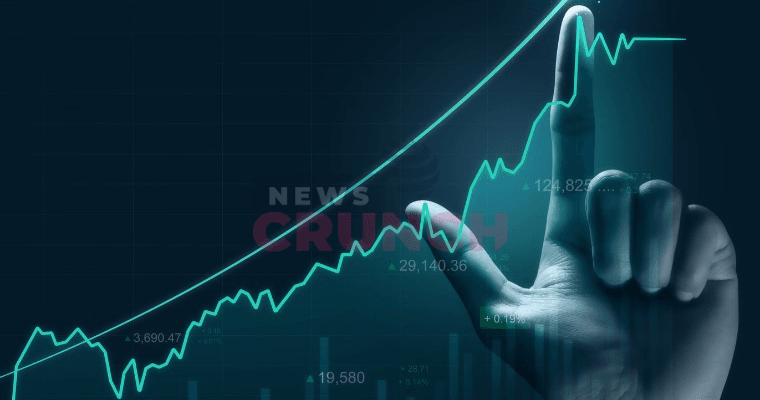
Introduction: Speculator Definition
If you’ve followed the stock market or cryptocurrency prices, you’ve probably seen some people make money seemingly out of nowhere and some lose a lot, too. That’s what speculation is all about. It’s not about buying a stock and waiting years to see it grow. Speculators try to predict short-term price changes and act fast.
Most people assume speculation is pure gambling, but that’s not right. Sure, there’s risk, but good speculators do their homework. They watch trends, track news, and sometimes even rely on experience or intuition. It’s messy, it’s fast-paced, and honestly, it can be thrilling.
Speculation also helps the bigger picture. Every time someone trades actively, they make the market more liquid. That means other traders, investors, and companies can operate more smoothly. Without speculators, prices would move more slowly, and markets would feel stuck.
But here’s the thing, it’s not for everyone. You need patience, nerves, and a willingness to learn from mistakes. Jump in unprepared, and you’ll probably burn money fast. Approach it wisely, and it can be profitable. Plus, you’ll start seeing markets in a way most casual investors never do.
2. Definition of a Speculator
A speculator buys or sells assets like stocks, commodities, or currencies to profit from short-term price movements. They aren’t looking for long-term growth or dividends; they focus on timing and trends.
Speculators rely on research, analysis, and sometimes intuition. They watch charts, study indicators, and pay attention to news events that could influence prices. Risk is part of the game, but it’s calculated risk.
Speculators play a key role in markets. By trading actively, they add liquidity and help with price discovery. That means markets reflect real supply and demand rather than lagging. Without speculators, markets would be slower, less responsive, and more challenging for investors.
Successful speculators require planning, discipline, and an understanding of market behavior. It’s not random guessing it’s a skill you develop with experience and careful observation.
3. Speculator vs. Investor: Key Differences
Investors and speculators often get lumped together, but their approach is very different. Investors usually focus on the long-term. They study a company’s fundamentals, earnings, and growth potential, aiming for steady returns.
Speculators, on the other hand, look for short-term opportunities. They analyze market trends, technical charts, and sometimes public sentiment to predict price swings. Their goal is quick profit, not long-term wealth accumulation.
Holding periods differ, too. Investors may have been riding out ups and downs for years. Speculators may trade within hours, days, or weeks. Speculators also often use tools like options, futures, or leverage to maximize gains.
Both play essential roles. Investors bring stability; speculators provide liquidity and faster market adjustment. Understanding your goals and risk tolerance helps decide which approach is right for you.

4. Types of Speculators
Speculators come in many shapes and sizes, each with its own approach, time horizon, and risk tolerance. Understanding the different types can help you decide which path fits your goals, skills, and personality.
Day traders are the fast-paced players of the market. They buy and sell assets multiple times daily, aiming to profit from small price changes. This speculation demands constant attention, quick thinking, and managing stress effectively. Day traders often use technical indicators, price charts, and market news to make split-second decisions.
Swing traders take a slightly longer approach, holding positions for several days or weeks. They aim to capture medium-term trends and are less consumed by minute-to-minute fluctuations. Swing trading still requires research and careful monitoring, but allows more breathing room compared to day trading.
Commodity traders focus on physical assets like oil, gold, agricultural products, and natural resources. Their trades often influence real-world supply-demand dynamics, making them critical to market stability. Commodity speculation requires understanding global events, weather patterns, and geopolitical developments.
Forex traders specialize in currency markets. They profit from fluctuations in exchange rates caused by economic data, interest rate changes, and geopolitical events. Forex trading is highly liquid and operates around the clock, offering opportunities and volatility.
Finally, derivatives traders use futures, options, and other complex instruments to hedge risks or amplify potential returns. Derivatives trading demands a deep understanding of market mechanics and careful risk management.
Regardless of the type, every speculator must combine research, observation, and emotional control. Choosing the right approach depends on your goals, comfort with risk, and ability to stay disciplined. The key is to match your strategy with your personality and market understanding.
5. The Role of Speculators in Financial Markets
Speculators are often misunderstood, but their role is vital in keeping financial markets healthy. They act as catalysts, ensuring prices reflect supply, demand, and investor sentiment, contributing to market efficiency. Without them, markets would be slower, less liquid, and less efficient.
One of the most important contributions of speculators is providing liquidity. This allows buyers and sellers to transact quickly without causing huge price swings when a market is liquid. The benefits extend to long-term investors, businesses, and consumers. For example, commodity speculators allow producers and consumers to hedge against unpredictable price movements of oil, grains, or metals.
Speculators also help with price discovery, meaning the prices of assets reflect real-time information about market conditions. By actively participating, they help identify trends and imbalances, stabilizing markets over time. This makes it easier for companies to plan budgets, investors to make informed decisions, and governments to manage economic policies.
It’s important to note that speculation can cause short-term volatility, especially when many traders react to news or rumors. However, responsible speculation smooths out these fluctuations in the long term. Speculators act as the lifeblood of markets, creating opportunities for others and maintaining market integrity.
In short, their activity ensures markets operate efficiently, providing both individual and systemic benefits. Active, informed, and disciplined speculators help keep the financial ecosystem alive and responsive.
6. Risks and Rewards of Speculation
Speculation is inherently risky, but that risk comes with the potential for reward. Prices can fluctuate and be influenced by news, investor sentiment, and unexpected events. A single miscalculation can result in significant financial losses, especially if leverage is involved.
The rewards, however, can be substantial. Skilled speculators can generate profits quickly, taking advantage of short-term opportunities that long-term investors may miss. The key lies in combining strategy with preparation and discipline. Speculation is not gambling; it’s calculated risk-taking.
Risk management is critical. Stop-loss orders, position sizing, and portfolio diversification are tools used to limit potential losses. Emotional discipline is equally important. Panicking during sudden price swings can turn minor setbacks into significant losses. Learning from each trade and adjusting strategies over time helps minimize errors and improve decision-making.
Speculation also contributes to financial markets. Profitable trades by speculators ensure liquidity and help stabilize prices for everyone else. Speculators play a dual role by understanding risk and reward dynamics: seeking personal gains while maintaining market efficiency.
Ultimately, speculation is a balancing act. Success requires patience, knowledge, and careful planning. Those who respect risk, manage their capital wisely, and stay disciplined can enjoy financial rewards and a deeper understanding of market behavior.
7. Famous Speculators in History
History is full of legendary speculators whose strategies and successes offer lessons for today’s traders. One of the most famous is Jesse Livermore, who made millions in the early 1900s by reading market trends and behavior. His approach combined technical analysis, intuition, and meticulous record-keeping.
George Soros is another well-known figure. In 1992, he famously shorted the British pound, earning over a billion dollars and demonstrating the power of careful analysis and decisive action. Soros’s success illustrates how understanding macroeconomic conditions can lead to extraordinary profits.
John D. Rockefeller, better known as an industrialist, also engaged in speculation. By predicting supply-demand imbalances in the oil market, he could profit immensely while influencing market prices.
What unites these speculators is not luck, but research, timing, strategy, and the ability to learn from mistakes. They studied markets relentlessly, adapted to changing conditions, and applied calculated risk-taking.
For aspiring speculators, these figures inspire. Their successes—and failures—show that speculation can be profitable, educational, and market-enhancing, provided it is approached intelligently.
8. Legal and Ethical Considerations
Speculation is legal when done within the framework of regulations. Most countries have strict rules to prevent manipulation, insider trading, and fraud. Engaging in illegal practices can result in fines, imprisonment, or bans from trading.
Ethical speculation goes beyond legality. Responsible traders rely on publicly available information, avoid spreading false rumors, and refrain from destabilizing markets for personal gain. Compliance protects not only individual traders but also the financial system’s integrity.
For beginners, understanding regulatory guidelines is essential. Knowing what is allowed ensures you avoid penalties while trading effectively. Ethics also build trust, which is critical in financial communities. Traders who follow rules and act responsibly are more likely to succeed.
In short, legality and ethics are intertwined. Successful speculation combines opportunity with responsibility, ensuring that markets function fairly and efficiently for everyone.
9. How to Become a Speculator
Starting as a speculator requires preparation, not just capital. Education is the first step. Learn about financial markets, different assets, and trading strategies. Read books, take courses, and study charts and historical trends.
Practice is equally essential. Paper trading—simulated trading with no real money—helps you test strategies and understand market behavior without risk. Once confident, start small and gradually increase exposure.
Risk management is the backbone of sustainable speculation. Use stop-loss orders, control position sizes, and diversify across assets. Emotional control is crucial; impulsive trades often lead to losses. Review your trades regularly, learn from mistakes, and refine strategies.
Mentorship and community can accelerate learning. Engaging with experienced traders or financial forums provides insights and feedback that books alone cannot offer.
In short, becoming a successful speculator is a journey. Education, practice, risk management, and continuous learning are the pillars that separate profitable traders from amateurs.

10. Common Strategies Used by Speculators
Speculation isn’t random guessing; it’s built around strategies that help traders identify opportunities and manage risk. The most common methods involve understanding price movements, trends, and market sentiment.
Momentum trading is one such strategy. Traders look for assets moving intensely in one direction and ride the trend until it starts to fade. Momentum traders rely heavily on technical indicators, chart patterns, and volume analysis to time entries and exits. Quick decision-making and strict risk management are crucial here.
Arbitrage exploits price differences for the same asset across markets. For example, if gold trades slightly higher on one exchange than another, speculators can buy low and sell high, earning a profit with minimal risk. This requires speed, precision, and access to real-time data.
Technical analysis focuses on studying charts, patterns, and historical price movements. Traders use moving averages, RSI, and MACD indicators to predict potential price reversals or trend continuation. Discipline is essential to avoid chasing false signals.
Derivatives trading involves futures, options, or swaps to hedge risk or amplify returns. This is advanced speculation and requires understanding leverage, expiration dates, and volatility. Done correctly, it can protect capital or enhance profits, but mistakes can be costly.
Successful speculators often combine strategies. They remain flexible, adapting as market conditions change. Observation, patience, and a willingness to learn are just as important as any technical method. Ultimately, strategy alone isn’t enough—consistent execution, emotional control, and reflection on past trades make the difference between profitable speculation and avoidable losses.
11. Tools and Resources for Speculators
Speculators today have access to a wide range of tools and resources that make analysis and execution faster and more effective. Choosing the right tools can significantly improve performance.
Trading platforms like MetaTrader, TradingView, and ThinkorSwim provide real-time data, advanced charting tools, and alerts. They allow traders to monitor multiple assets, set stop losses, and execute trades quickly. Speed and reliability are crucial in speculation, where opportunities can appear and vanish within minutes.
Financial news and analysis are equally important. Sources like Bloomberg, Reuters, and CNBC offer timely information on economic events, corporate earnings, and geopolitical developments. Speculators use this data to anticipate price movements and adjust strategies.
Educational resources also matter. Online courses, webinars, and mentorship programs help traders understand market mechanics, risk management, and strategy development. Reading books by experienced traders or market analysts provides practical insights that theory alone cannot deliver.
Community and networking provide additional support. Forums, trading groups, and social media communities allow speculators to discuss ideas, share experiences, and receive feedback. Learning from others’ successes and mistakes can accelerate skill development.
Ultimately, tools and resources are only as good as the trader using them. Combining reliable platforms, credible information, continuous learning, and disciplined execution gives speculators the edge they need in competitive markets.
12. Economic Impact of Speculation
Speculators play a critical role in the broader economy, even though their actions are often misunderstood. By trading actively, they improve market efficiency, helping ensure prices reflect real-world supply and demand.
Liquidity is one significant contribution. When speculators buy and sell assets, they make it easier for others to enter or exit positions without causing drastic price swings. This benefits long-term investors, companies, and even governments trying to manage economic policy.
Speculators also facilitate price discovery. Analyzing trends, responding to news, and trading strategically help set accurate market prices. For example, commodity speculators allow producers and consumers to hedge against unpredictable changes in oil, metals, or agricultural products, stabilizing costs and production planning.
While speculation can create short-term volatility, responsible trading stabilizes markets long-term. In essence, speculators act as a balancing force: they take on risk that others may avoid and contribute to the smooth functioning of financial systems.
Understanding this impact highlights that speculation isn’t just about personal gain—it has a broader purpose. Economies, markets, and everyday investors benefit from active, informed speculation that maintains liquidity, promotes price accuracy, and improves efficiency across sectors.
13. Myths About Speculators
There are many misconceptions about speculators. One common myth is that they are reckless gamblers. Successful speculators rely on research, strategy, and risk management. They don’t randomly bet on price movements—they analyze trends, news, and historical data before making decisions.
Another myth is that speculators destabilize markets. While excessive speculation can temporarily increase volatility, responsible traders provide liquidity and help prices reflect real supply and demand. Their activity actually supports stability over time.
Some people assume you need millions to start speculating. This isn’t true. Knowledge, preparation, and risk management often matter more than capital. Beginners can start small, learn from mistakes, and scale as they gain experience.
Finally, speculation is sometimes seen as purely selfish. In reality, informed speculators contribute to market efficiency, benefiting other investors, businesses, and the economy. Understanding these myths helps newcomers approach speculation with a realistic perspective and confidence.
14. Tips for Minimizing Risk
Minimizing risk is essential in speculation. Even skilled traders can face losses without proper safeguards. Here are some key strategies:
- Use stop-loss orders: Automatically exit losing trades to limit potential damage.
- Diversify trades: Spread investments across assets and markets to reduce exposure.
- Control leverage: Avoid excessive borrowing; leverage amplifies gains and losses.
- Stick to a plan: Set entry, exit, and risk thresholds before trading.
- Stay calm: Emotional decisions often lead to mistakes. Discipline is crucial.
- Learn continuously: Review trades, analyze mistakes, and refine strategies.
Risk management separates successful speculators from those who fail quickly. By combining strategy, discipline, and constant learning, traders can reduce potential losses while maximizing opportunities.

15. Conclusion: Is Speculation Right for You?
Speculation can be rewarding, but it isn’t for everyone. It requires preparation, education, and discipline. Successful speculators understand risk, stay calm under pressure, and continuously learn from wins and losses.
Responsible speculation benefits financial markets by providing liquidity and helping prices reflect actual supply and demand. Traders who approach speculation thoughtfully contribute to market efficiency, making trading smoother for others.
Speculation can be financially rewarding and educational if you’re willing to commit time to learning, planning carefully, and executing strategies responsibly. It provides insights into market behavior that most investors never experience and teaches valuable lessons about risk, patience, and strategy.
FAQs: What is a Speculator?
- What is a speculator?
A speculator trades financial assets to profit from short-term price changes rather than holding investments for long-term growth. - How is a speculator different from an investor?
Investors focus on long-term growth and fundamentals; speculators aim for short-term gains from market fluctuations. - Are speculators important for markets?
Yes, they provide liquidity, aid price discovery, and ensure markets adjust efficiently for investors and businesses. - What risks do speculators face?
Speculators face volatility, leverage risks, and sudden market changes, leading to significant losses without discipline. - What types of speculators exist?
Day traders, swing traders, commodity traders, forex traders, and derivatives traders all use strategies to profit from price moves. - Can anyone become a speculator?
With knowledge, discipline, experience, and proper risk management, anyone can engage in speculative trading successfully. - Do speculators only trade stocks?
They trade stocks, currencies, commodities, bonds, and derivatives depending on their chosen strategy. - Is speculation legal?
Yes, as long as it follows regulations. Insider trading, fraud, or manipulation is illegal and punishable by law. - What strategies do speculators use?
Common strategies include momentum trading, arbitrage, technical analysis, and derivatives trading, like options and futures. - How can speculators minimize risk?
Using stop-loss orders, diversification, position sizing, and disciplined planning helps manage risk and protect capital effectively.







